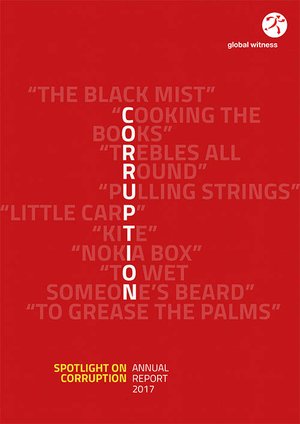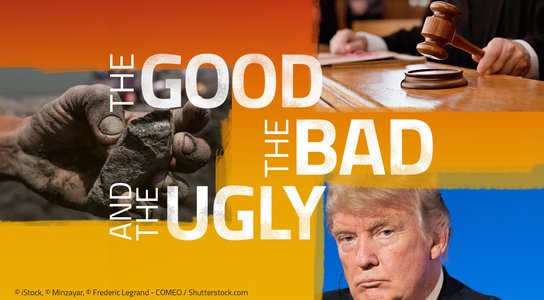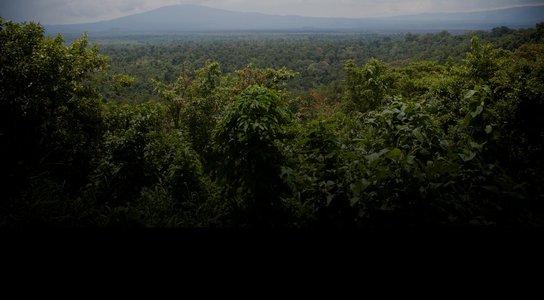Hot off the press today is our latest Annual Report, a snapshot of Global Witness’ work and finances for the past year.

Our 2017 Annual Report is dedicated to the theme of corruption
It’s also a moment for us to thank our generous funders without whom our work - diving into investigations, convincing politicians that change really can happen or exposing a truth the powerful and corrupt are trying to bury – would simply not be possible.
Reading this year’s report, I’m struck by how much we’ve been able to achieve in 12 short months. You can find out more about the challenges and achievements here: Global Witness Annual Report 2017: Spotlight on Corruption (PDF, 4 MB)
A celebration of progress…
At times in 2017, it felt like we were salmon swimming upstream; and when I reflect on the social and political challenges we faced, our achievements seem all the more remarkable.
There really were some impressive wins! Not only did we help bring about one of the largest corporate corruption trials in history, we also revealed how President Trump made millions from selling his name to a luxury development used to launder money from Latin American drug cartels and we campaigned hard for greater transparency in the British overseas territories.
The latter bore the most incredible fruit just last week when the UK government committed to huge transparency legislation which, if implemented correctly, will overhaul the way illicit money is allowed to freely flow through our financial systems. You can read more about how that played out here.
And an exploration of systemic corruption
For 2017, we have dedicated our Annual Report to the theme of corruption. It may seem odd to be so specific when we work on such a vast range of topic areas, but this year, we want to challenge and re-evaluate the definition of corruption. All too often, people view corruption in the narrowest sense, envisioning cash being paid for favours and access in a series of separate crimes. It’s often seen as faceless, victimless and committed in faraway lands by mafia-style gangs conforming to a Hollywood stereotype. But this couldn’t be further from the truth.
Corruption is the modus operandi of kleptocrats and dictators from resource rich countries, as well as sophisticated, organised crime groups and terrorists from all over the world. Moreover, our work has shown again and again how the services offered by financial centres like the UK and US don’t just facilitate globalised corruption - they are at the epicentre of it. Yet this is rarely recognised as corruption – and hardly ever discussed as part of a serious global problem driving human and environmental abuses.
Corruption is pervasive – everywhere in the world people have their own language for it, and will go to great lengths to avoid straight talking.
So what is corruption?
We define it as the broken global systems that enable a handful of criminals to benefit whilst millions lose out.
When someone is murdered defending their home because big business wants their land –this is corruption. When people struggle for shelter while empty mansions are used to launder money – this is corruption. When a child breathes polluted air because coal companies and politicians put profits before people –this is corruption.
Corruption has a deep-rooted impact across societies and is at the centre of much of the destruction of people and planet. It is for this reason we have dedicated our Annual Report to unpicking the causes and consequences of corruption at every point in its lifecycle.
If you’re a new supporter to Global Witness and want to learn more, or are simply interested in what we do but have limited time to absorb this, our Annual Report is a great place to start. So please do take a look, and join us as we continue to fight for a fairer and more sustainable future.
Global Witness Annual Report 2017: Spotlight on Corruption (PDF, 4 MB)


